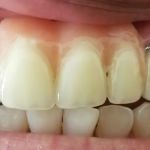How to Prevent Gum Recession in Older Adults
Trending Blog Articles
Popular Dental Blog Posts
 What Are Dental Crowns and How They Help Restore Your Teeth?
What Are Dental Crowns and How They Help Restore Your Teeth?Discover what dental crowns are, how they restore teeth, and the benefits they provide. Learn about the process, types of crowns, and how to care for them.
 The Role of a Dental Hygienist and How They Help Your Health
The Role of a Dental Hygienist and How They Help Your HealthLearn about the important role of dental hygienists in maintaining oral health and how their services help prevent common dental issues such as gum disease and cavities.
 What Is Root Canal Treatment and When Do You Need One?
What Is Root Canal Treatment and When Do You Need One?Learn everything you need to know about root canal treatment. Understand when you might need one, the procedure, recovery, and my personal experience with root canal treatment.
 How to Treat Receding Gums: Treatment Options and Prevention
How to Treat Receding Gums: Treatment Options and PreventionLearn how to treat receding gums with effective treatment options and prevention tips. Discover the causes of gum recession and how to keep your gums healthy for a better smile.
 What Are the Benefits of Using a Waterpik for Dental Health?
What Are the Benefits of Using a Waterpik for Dental Health?Discover the benefits of using a Waterpik for dental health. Learn how this water flosser can improve your oral hygiene routine, prevent gum disease, and provide a healthier smile.
 How to Handle a Loose Tooth in Children: A Parent’s Guide to Managing the Situation
How to Handle a Loose Tooth in Children: A Parent’s Guide to Managing the SituationDiscover how to handle a loose tooth in children with our comprehensive guide. Learn helpful tips for managing the situation and ensuring your child's comfort and oral health during this natural process.
Categories
Popular Dental Clinics
 Rush Family Dental5.0 (161 review)
Rush Family Dental5.0 (161 review) Lafayette Hill Family Dentistry4.0 (5 review)
Lafayette Hill Family Dentistry4.0 (5 review) Steven J. Moravec, DDS, MS4.0 (189 review)
Steven J. Moravec, DDS, MS4.0 (189 review) Sunnyvale Pediatric Dentistry and Orthodontics4.0 (365 review)
Sunnyvale Pediatric Dentistry and Orthodontics4.0 (365 review) New Millennium Dental Group3.0 (30 review)
New Millennium Dental Group3.0 (30 review) By Design Dental4.0 (52 review)
By Design Dental4.0 (52 review) Top Dental Blog Posts
Most Searched Dental Clinics
Hot Blog Topics
 The Importance of Oral Health Education During Pregnancy for a Healthy Pregnancy
The Importance of Oral Health Education During Pregnancy for a Healthy Pregnancy Best Tips for Brushing Your Teeth Properly for Healthy Gums: Essential Techniques for Oral Health
Best Tips for Brushing Your Teeth Properly for Healthy Gums: Essential Techniques for Oral Health Why Skipping Dental Checkups Can Lead to Bigger Oral Health Problems
Why Skipping Dental Checkups Can Lead to Bigger Oral Health Problems Advantages of Porcelain Dental Restorations
Advantages of Porcelain Dental Restorations How Can Diabetes Cause Tooth and Gum Problems? Preventing and Managing Oral Health Issues
How Can Diabetes Cause Tooth and Gum Problems? Preventing and Managing Oral Health Issues Healthy Habits for Promoting Good Oral Health and Hygiene: Tips for a Healthy Smile
Healthy Habits for Promoting Good Oral Health and Hygiene: Tips for a Healthy Smile 